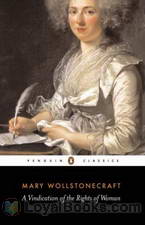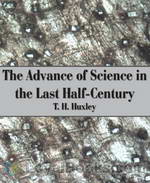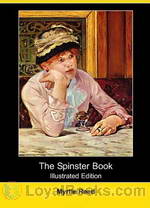|
Books Should Be Free Loyal Books Free Public Domain Audiobooks & eBook Downloads |
|
|
Books Should Be Free Loyal Books Free Public Domain Audiobooks & eBook Downloads |
|
Science |
|---|
|
Book type:
Sort by:
View by:
|
By: Edwin Abbott Abbott (1838-1926) | |
|---|---|
 Flatland: a romance of many dimensions (Illustrated)
Flatland: a romance of many dimensions (Illustrated)
| |
By: Francis Bacon (1561-1626) | |
|---|---|
 The New Atlantis
The New Atlantis
In 1623, Francis Bacon expressed his aspirations and ideas in New Atlantis. Released in 1627, this was his creation of an ideal land where people were kind, knowledgeable, and civic-minded. Part of this new land was his perfect college, a vision for our modern research universities. Islands he had visited may have served as models for his ideas. | |
 Valerius Terminus; of the interpretation of nature
Valerius Terminus; of the interpretation of nature
| |
By: Frank Richard Stockton (1834-1902) | |
|---|---|
 The Great War Syndicate
The Great War Syndicate
| |
 The Great Stone of Sardis
The Great Stone of Sardis
| |
 Round-about Rambles
Round-about Rambles
ROUND-ABOUT RAMBLES, In Lands of FACT AND FANCYBY FRANK R STOCKTONPREFACECome along, boys and girls! We are off on our rambles. But please do not ask me where we are going. It would delay us very much if I should postpone our start until I had drawn you a map of the route, with all the stopping-places set down. We have far to go, and a great many things to see, and it may be that some of you will be very tired before we get through. If so, I shall be sorry; but it will be a comfort to think that none of us need go any farther than we choose... | |
By: Lester Del Rey (1915-1993) | |
|---|---|
 Badge of Infamy
Badge of Infamy
Shifting between Earth and Mars, Badge of Infamy focuses on the gripping tale of a former doctor who becomes a pariah due to being temporarily governed by emotion and compassion, rather than complying with the highly regarded rules established by the Medical Lobby. Furthermore, the novel covers numerous topics including justice, brutality, betrayal, ethics, political control, and lobbying. Set in the year 2100, the novel begins with the introduction of its protagonist, Daniel Feldman, an ethical man, who makes the terrible mistake of going against the fixed medical protocol and performing surgery to save the life of a friend... | |
By: Lester del Rey | |
|---|---|
 Victory
Victory
Lester del Rey (1915 – 1993) was a Golden Age science fiction author and editor closely connected to John W. Campbell Jr. and Astounding Science Fiction magazine. He also founded Del Rey Books, a popular publishing label he edited with his wife Judy-Lynn. Victory is the story of an undefended Earth in a warring galaxy. It appeared in the August 1955 issue of Astounding Science Fiction. | |
By: Lester Del Rey (1915-1993) | |
|---|---|
 Dead Ringer
Dead Ringer
| |
By: Lester del Rey (1915-1993) | |
|---|---|
 Police Your Planet
Police Your Planet
Bruce Gordon looked at his ticket, grimaced at the ONE WAY stamped on it, then tore it into bits and let the pieces scatter over the floor. He counted them as they fell; thirty pieces in all, one for each year of his life. Little ones for the two years he'd wasted as a cop. Shreds for the four years as a kid in the ring before that--he'd never made the top. Bigger bits for two years also wasted in trying his hand at professional gambling; and the six final pieces that spelled his rise from special reporter helping out with a police shake-up coverage, through a regular leg-man turning up rackets, and on up like a meteor until... | |
By: Thomas Hobbes (1588-1679) | |
|---|---|
 Leviathan, or The Matter, Forme and Power of a Common Wealth Ecclesiasticall and Civil
Leviathan, or The Matter, Forme and Power of a Common Wealth Ecclesiasticall and Civil
Books 1 and 2. Leviathan, or The Matter, Forme and Power of a Common Wealth Ecclesiasticall and Civil is a book written in 1651 by Thomas Hobbes. The book concerns the structure of society (as represented figuratively by the frontispiece, showing the state giant made up of individuals). In the book, Hobbes argues for a social contract and rule by a sovereign. Influenced by the English Civil War, Hobbes wrote that chaos or civil war – situations identified with a state of nature and the famous motto bellum omnium contra omnes (”the war of all against all”) – could only be averted by strong central government... | |
By: Charles Morris (1833-1922) | |
|---|---|
 The San Francisco Calamity by Earthquake and Fire
The San Francisco Calamity by Earthquake and Fire
The first half of this book describes the devastating earthquake that hit San Francisco in 1906, and the subsequent destruction caused by fire. Various eyewitnesses and victims give their account on the tragedy. In the second half, a number of different other earthquakes and volcanic eruptions are retold, like the eruption of the Vesuvius that destroyed Pompeij or the explosion of the Krakatoa, together with scientific explanations for the causes of earthquakes and the eruption of volcanos. | |
By: Mary Wollstonecraft (1759-1797) | |
|---|---|
 A Vindication of the Rights of Woman
A Vindication of the Rights of Woman
Regarded as the one of the earliest examples of feminist philosophy, A Vindication of the Rights of Woman is written as a direct response to Charles Maurice de Talleyrand-Périgord, a French politician who delivered a report to the French National Assembly suggesting that women should only receive domestic education and additionally encourages women to stay clear of political affairs. In her treatise, Wollstonecraft avidly criticizes this inadequate perception of women as an inferior sex and attacks social inequality, while also arguing for women’s rights in the hope of redefining their position both in society and in marriage... | |
By: L. A. Abbott (1813-??) | |
|---|---|
 Seven Wives and Seven Prisons
Seven Wives and Seven Prisons
This work the author claims is indeed a true story of how he happened to be married seven times to seven different women and the rollicking, hilarious events that led (or stumbled) to the marriages and the ah–disassembling/failing/failures of each said marriage which happened oftentimes to land him in prison. The summarist finds the work a very tongue-in-cheek diatribe/lament/account of his obsessive zeal in ‘marrying the right one’, but is also the mirthful chronicle of said author’s very unconventional adventures. | |
By: Philip K. Dick (1928-1982) | |
|---|---|
 The Crystal Crypt & Beyond the Door
The Crystal Crypt & Beyond the Door
Two early science fiction stories by the wonderful craftsman, Philip K. Dick. In the Crystal Crypt, taken from the 1954 Planet Stories, the war between Mars and Terra is about to erupt and earth has only merchants and salesmen to fight; can they carry out their mission? Beyond the Door is a story that asks and answers the question: what lives beyond the door? And is it dangerous? | |
 The Gun
The Gun
| |
 Beyond Lies the Wub & The Skull
Beyond Lies the Wub & The Skull
Two stories in the inimitable Philip Dick style. What is a Wub? A 400 pound slovenly, fat, ungainly, drooling animal that looks like a cross between a walrus and an enormous hog? Well, yes that is pretty much what he looks like and for 50 cents, a good bargain no matter how he tastes. The hungry spaceship crew expect to find out. Of course the Wub may not entirely agree but it doesn't have much to say about it. The second story, The Skull, is a skilful mesh of time travel, unscrupulous governments, prisoners, and religion. With an assassin thrown in for good measure. Enjoy! | |
 The Skull
The Skull
| |
By: H. G. Wells (1866-1946) | |
|---|---|
 When the Sleeper Wakes
When the Sleeper Wakes
| |
 Text Book of Biology, Vertebrata
Text Book of Biology, Vertebrata
| |
 Mankind in the Making
Mankind in the Making
| |
By: Theodore Roosevelt | |
|---|---|
 Through the Brazilian Wilderness
Through the Brazilian Wilderness
Roosevelt’s popular book Through the Brazilian Wilderness describes his expedition into the Brazilian jungle in 1913 as a member of the Roosevelt-Rondon Scientific Expedition co-named after its leader, Brazilian explorer Cândido Rondon. The book describes all of the scientific discovery, scenic tropical vistas and exotic flora, fauna and wild life experienced on the expedition. One goal of the expedition was to find the headwaters of the Rio da Duvida, the River of Doubt, and trace it north to the Madeira and thence to the Amazon River... | |
By: Keith Laumer (1925-1993) | |
|---|---|
 Gambler's World & The Yillian Way
Gambler's World & The Yillian Way
Here are two stores starring the always unconventional Terrestrial Diplomat, Retief. As a diplomat, Retief does not always follow procedure. Well the truth is that he almost never follows procedure but somehow his wit and strength manage to salvage most situations from the bumbling of his superiors. His sardonic approach to inter galactic negotiations in these two stories is a delight to hear. Despite everything, he manages to save the day and come out on top. | |
 The Yillian Way
The Yillian Way
| |
By: J. Arthur Thomson (1861-1933) | |
|---|---|
 The Outline of Science
The Outline of Science
The Outline of Science, Volume 1 was written specifically with the man-on-the-street in mind as the target audience. Covering scientific subjects ranging from astronomy to biology to elementary physics in clear, concise and easily understood prose, this popular science work is largely as relevant today as when first published in 1922. Special emphasis is given to the principles of biological adaptation and evolution, especially how they relate to the rise of the human species from lower orders. Also included are the basics of the (then) fairly new concept of relativity and its impact on emerging scientific theories... | |
By: Thomas Henry Huxley (1825-1895) | |
|---|---|
 The Advance of Science in the Last Half-Century
The Advance of Science in the Last Half-Century
Thomas H. Huxley, an English biologist and essayist, was an advocate of the theory of evolution and a self-proclaimed agnostic. A talented writer, his essays helped to popularize science in the 19th century, and he is credited with the quote, “Try to learn something about everything and everything about something.” In The Advance of Science in the Last Half Century, he presents a summary of the major developments in Physics, Chemistry and Biology during the period 1839-1889 and their impact on society, within the historical context of philosophical thought and scientific inquiry going back to Aristotle... | |
By: John Locke (1632-1704) | |
|---|---|
 Second Treatise of Government
Second Treatise of Government
| |
By: Myrtle Reed (1874-1911) | |
|---|---|
 The Spinster Book
The Spinster Book
A cross between guidebook and social commentary, The Spinster Book gives clever and humorous insights on topics such as courting, handling men and women, love letters, marriage and spinsterhood. | |
By: Plague Ship (1912-2005) | |
|---|---|
 Voodoo Planet
Voodoo Planet
The sequel to Plague Ship, Voodoo Planet finds the Solar Queen banned from trade and starting her supposed quiet two-year stint as an interstellar mail carrier. But instead her crew accepts a visit to the safari planet of Khatka, where they find themselves caught in a battle between the forces of reason and the powers of Khatka’s mind-controlling wizard. | |